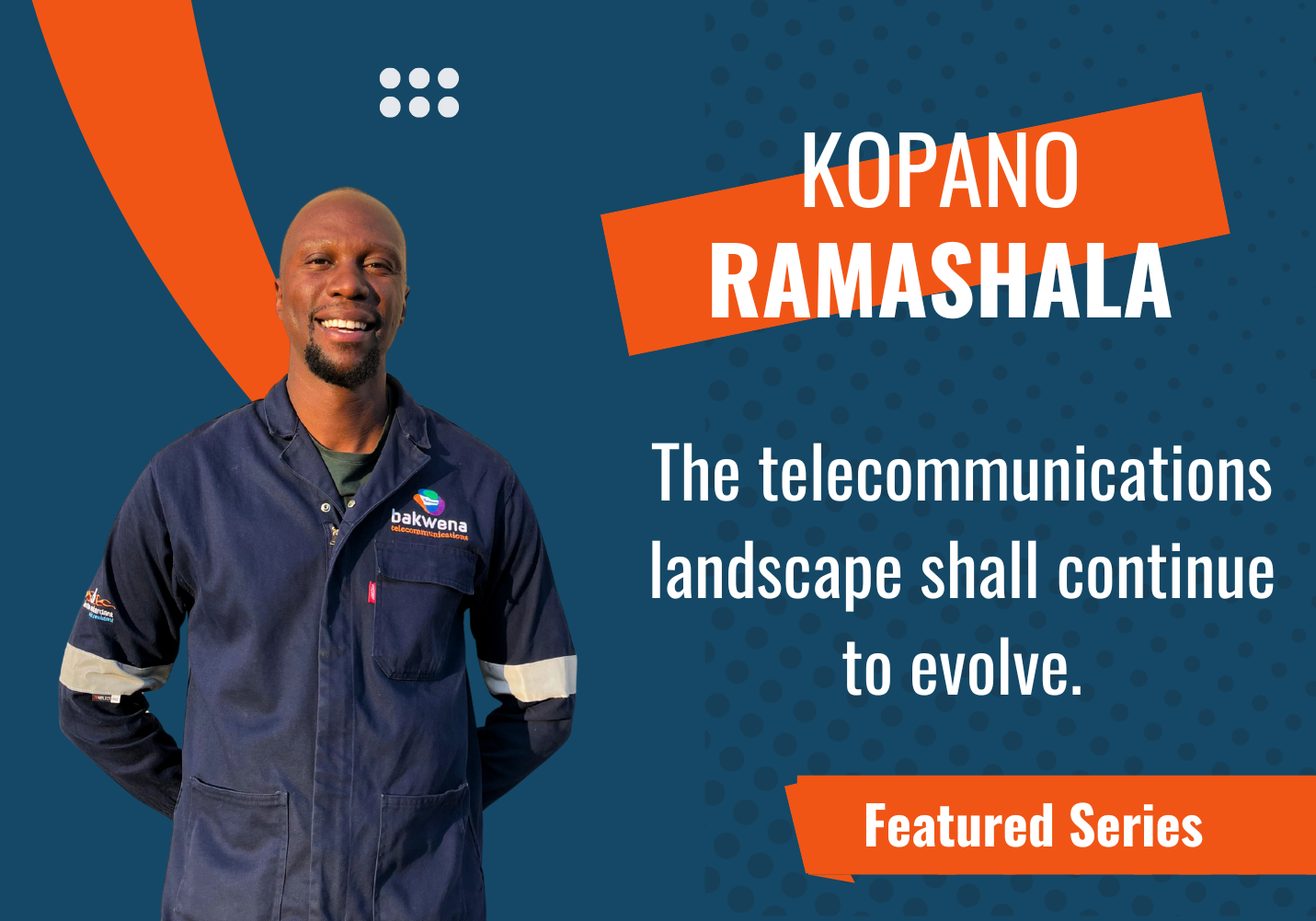The Internet is a powerful tool that allows us to gain access to information and global communities. Bringing it closer to home, the Internet is used to empower everyday South Africans with access to jobs, and entrepreneurs get to network and gain access to tools and life-changing opportunities through the Internet. School work nowadays is digitised, meaning access to the Internet is a necessity for school kids to thrive.
Bakwena Telecommunications, one of the first Black-owned telecommunications providers, brings affordable internet access to Daveyton, a township in the east of Johannesburg.
“I was pushed to become an Internet service provider (ISP) in the township I grew up in, as there were no ISPs providing uncapped connectivity. Buying data is too expensive, and there were simply no other options,” says Kopano Ramashala, founder of Bakwena Telecommunications.
Bridging the Digital Divide One Step at a Time
Kopano started his journey with just one tower, a few customers, and packages that had started from R120 per month at the time. Over time, the business grew with more towers and more customers. His personal background in IT networking was instrumental in building a robust and secure network, which formed the backbone for numerous towers across their service areas.
“To ensure that we provide quality and secure services, we use only the best quality network products, which are tried and tested and recommended for use by other ISPs.” The business started with a wireless Internet offering, and according to Kopano, this decision was driven by its rapid deployment capabilities and significantly lower capital expenditure compared to fibre, ultimately making their services more affordable for clients.
Serving Community Needs Through Telecommunications
When it comes to expanding connectivity into underserved or rural areas, Bakwena Telecommunications adopts a straightforward, community-focused approach. Kopano explains his process: “The process is simple. I try my best to engage with the locals about their connectivity needs and then go about setting up a network that will suit them for their needs.”
Communicating directly with communities about what they need allowed Bakwena Telecommunications to efficiently bring about solutions in the community. As part of Kopano’s aim to continue to provide affordable access to underserved communities, he has various strategies in place.
“In most rural areas, people use cellphones to access the Internet but might not have an appetite for streaming movies on TVs or laptops, as they might not afford them. In such areas, we would deploy Wi-Fi hotspots that one can connect to within 150 metres from the hotspot with their phones”.
He continues to explain that in areas where they have the means to own smart TVs and want to stream, they would deploy a fibre-backed tower at a central point where they can then connect customers’ homes using wireless antennas and routers indoors so they can connect all their devices.
Taking Internet Access to the Next Level
Kopano has a long-term vision to continue growing in the ISP space and servicing underserved and rural communities.
“The telecommunications landscape shall continue to evolve once all corners of the local and African landscape are serviced and connected. How service is delivered to the end customer needs to change in order to limit friction in accessing connectivity, and I am committed to ensuring my business plays its part in providing solutions,” he says.
Kopano envisions a future where Internet access has no restrictions. He proposes a solution where users are able to buy one bundle or voucher and be able to connect with it to any network anywhere across the continent.




